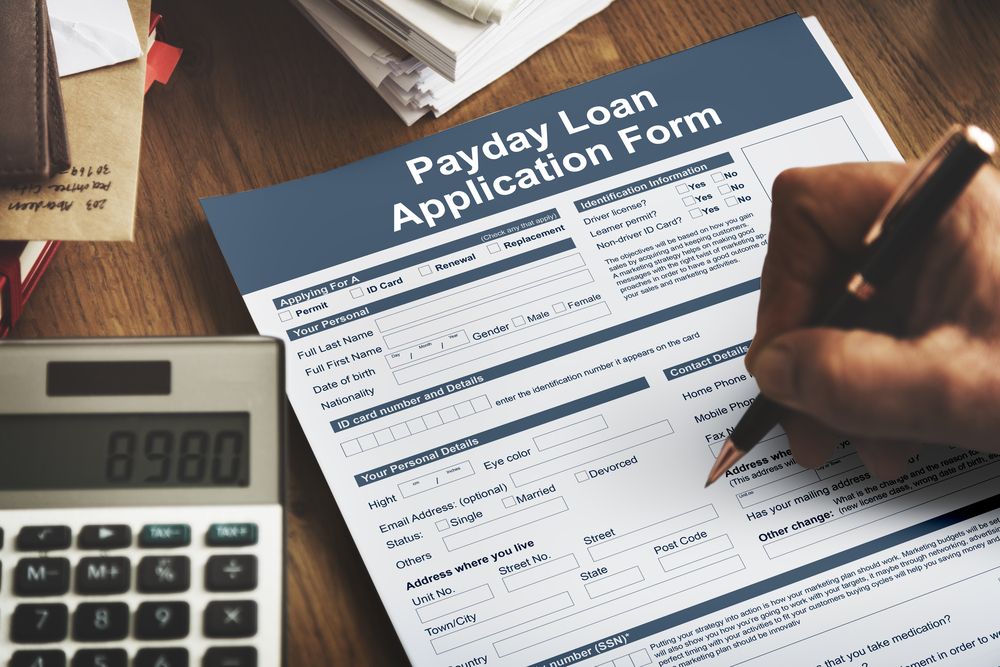Payday loans offer a fast solution to urgent financial needs, providing short-term relief for those who may lack access to traditional credit options. However, they come with significant risks due to high-interest rates and fees, often leading to debt traps. In this expanded guide, we’ll dive deep into the advantages and disadvantages of payday loans, their typical use cases, and alternatives, helping you make an informed decision before borrowing.
What Is a Payday Loan?
A payday loan is a short-term, high-interest loan designed to help individuals bridge the gap between paychecks. These loans are typically unsecured and do not require a credit check, making them accessible to borrowers with poor or no credit. Loan amounts are small—usually ranging from $100 to $1,500—and repayment is expected within two to four weeks, often on the borrower’s next payday.
Payday loans are easy to obtain from storefront lenders, online platforms, or financial service providers. However, the annual percentage rates (APRs) can exceed 400%, making them one of the most expensive borrowing options.
Pros of Payday Loans
1. Quick and Easy Access to Cash
Payday loans offer fast approval and disbursement, often within minutes. This makes them appealing for individuals facing urgent financial situations, such as medical emergencies or car repairs. Borrowers can apply in person or online, and some lenders provide same-day funding or deposit funds by the next business day.
For people with limited savings or no access to credit cards, payday loans can serve as a stopgap solution when immediate cash is needed.
2. No Credit Check Required
Payday lenders do not typically perform hard credit checks, making these loans accessible to individuals with bad credit or no credit history. Borrowers who may not qualify for traditional loans due to past financial issues often rely on payday loans as a last resort.
This feature makes payday loans attractive to borrowers who need money quickly without the hassle of navigating complicated credit checks or approval processes.
3. Minimal Documentation and Requirements
The eligibility criteria for payday loans are simple. In most cases, you’ll need:
- A valid ID (driver’s license or passport)
- Proof of steady income (pay stubs or bank statements)
- An active checking account
This simplicity allows borrowers to access loans without the stringent requirements of personal loans or credit cards, making payday loans ideal for those in immediate financial distress.
4. Unsecured Loan with No Collateral
Unlike secured loans such as mortgages or auto loans, payday loans do not require borrowers to provide collateral. This reduces the risk of losing valuable assets, such as your car or home, if you default on the loan.
5. Flexible Use of Funds
Payday loans can be used for any purpose, providing flexibility to borrowers. Whether it’s covering medical bills, paying utility bills, or handling unexpected car repairs, the loan proceeds can be allocated according to the borrower’s immediate needs.

Cons of Payday Loans
1. Extremely High Fees and Interest Rates
Payday loans come with exorbitant fees and interest rates. The APR on payday loans can range between 300% and 500%, depending on state regulations and lender practices. For example, borrowing $500 with a $75 fee means repaying $575 within two weeks. While the fee may seem manageable, the annual cost of borrowing becomes staggering when expressed as an APR.
High fees and interest charges make payday loans far more expensive than traditional credit options, such as credit cards or personal loans.
2. Short Repayment Periods
Most payday loans require repayment within two to four weeks, which can be challenging for borrowers already facing financial difficulties. If you can’t repay the loan on time, lenders may offer a rollover, where the loan term is extended in exchange for additional fees.
Borrowers who roll over payday loans often end up paying much more in fees and interest than the original loan amount, creating a cycle of debt.
3. Risk of Falling into a Debt Trap
Many borrowers who take out payday loans struggle to repay them on time, leading to repeated rollovers. Each rollover adds more fees and interest to the loan, trapping borrowers in a cycle of escalating debt.
For example, if you roll over a $500 loan with a $75 fee twice, your total repayment amount becomes $725 within just six weeks. This compounding debt can quickly spiral out of control, leaving borrowers financially worse off.
4. Potential for Bank Account Overdrafts
Payday lenders often require access to your checking account to withdraw the loan amount and fees on the due date. If the funds are not available, you may incur overdraft fees from your bank, adding further financial strain.
Repeated overdrafts can damage your relationship with your bank and may result in account closures, making it even harder to manage your finances.
5. Limited Impact on Credit Building
While payday loans offer fast cash without a credit check, they do little to build credit. Most payday lenders do not report payments to the major credit bureaus (Experian, Equifax, and TransUnion). This means that even if you repay the loan on time, it won’t improve your credit score.
However, if you default on the loan and the lender sends your account to collections, the debt could be reported to the credit bureaus, negatively impacting your credit score.
When to Use a Payday Loan
Payday loans should only be considered for short-term emergencies when no other options are available. Examples include:
- Covering emergency medical bills
- Paying a utility bill to avoid disconnection
- Funding an urgent car repair needed for work
If you’re confident that you can repay the loan on time, a payday loan can provide temporary relief. However, it’s essential to weigh the risks carefully and explore other options first.
Alternatives to Payday Loans
Payday loans can be risky, but there are safer alternatives to consider:
- Personal Loans from Credit Unions: Credit unions offer small personal loans with much lower interest rates than payday lenders.
- Credit Card Cash Advances: Although cash advances come with fees, their interest rates are typically lower than payday loans.
- Payment Plans with Service Providers: Some utility companies and medical providers offer payment plans, allowing you to spread out costs over time.
- Borrowing from Friends or Family: Asking for a short-term loan from a trusted family member can help you avoid high-interest payday loans.
- Employer Advances: Some employers offer paycheck advances, allowing you to access your wages early without fees.
- Nonprofit Assistance Programs: Look for local charities or nonprofit organizations that provide emergency financial assistance.
How to Avoid Payday Loan Dependency
If you’ve taken out a payday loan, it’s crucial to avoid relying on them repeatedly. Here are some tips to regain financial stability:
- Create an Emergency Fund: Set aside small amounts each month to build a buffer for unexpected expenses.
- Track Your Expenses: Use a budget to identify areas where you can cut back and free up cash.
- Seek Financial Counseling: Nonprofit credit counseling agencies can help you manage your debt and create a repayment plan.
- Look for Side Gigs: If possible, take on freelance work or part-time jobs to increase your income and reduce reliance on loans.
Payday loans can provide a quick solution in emergencies, but they come with significant risks. The high fees, short repayment terms, and potential for debt cycles make them a dangerous option for long-term financial stability.
Before taking out a payday loan, carefully assess your ability to repay it on time and explore safer alternatives, such as personal loans or paycheck advances. If you do choose to take out a payday loan, use it sparingly and focus on building an emergency fund to avoid future reliance on high-cost borrowing.
Understanding the pros and cons of payday loans allows you to make an informed decision, ensuring that you manage your finances wisely and avoid unnecessary debt.





